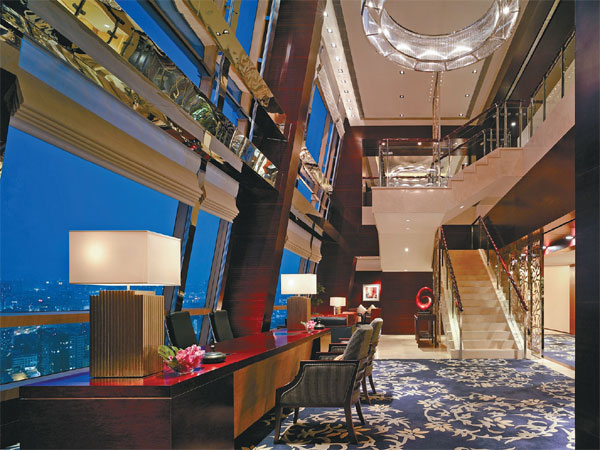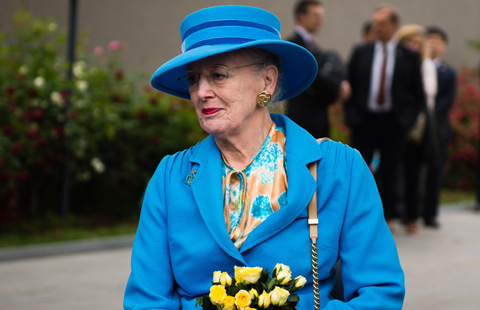Designs for China
Updated: 2014-05-10 07:20
By Rebecca Lo (China Daily)
|
|||||||||||
Mathew Lui and his team have helped shaped China's hotel industry over the past two decades, sometimes quite literally. He gives Rebecca Lo some insider tips on which cities are coming up.
If you build it, they will come. This famous line paraphrased from the 1989 film Field of Dreams seems to be the rationale for the extensive hospitality expansion throughout China in the past 20 years.
For Mathew Lui, partner with the Hong Kong office of Hirsch Bedner Associates, building a shiny new hotel in a sprawling mixed-use complex in a developing Chinese destination does not always equate with success for the owner or operator.
|
The Horizon Club in Shangri-La Chengdu is designed by Hirsch Bedner Associates, one of the world's biggest hospitality design firms. Photos Provided to China Daily |
One of the world's biggest hospitality design firms, HBA was founded in Santa Monica, California, in 1965 by Howard Hirsch and Michael Bedner.
The firm set up its Hong Kong office in the 1970s and has been responsible for designing some of China's most respected establishments, including White Swan Hotel in Guangzhou, Grand Hyatt Hong Kong and, more recently, renovating Shanghai's historic Fairmont Peace Hotel.
Lui worked on his first project in China 15 years ago when he was assigned to design the St. Regis in Shanghai (now a Luxury Collection hotel). He learned the differences between working in Hong Kong and the Chinese mainland, and that a lot of money spent on a project does not necessarily mean it will look good.
"The variation between projects on the mainland can be huge," Lui acknowledges. "After being burned a few times, I realized that I didn't want to invest our company's time and effort into a project where the outcome won't be something we're proud of. It's not worth the fees at the expense of the quality of our portfolio.
"There are some owners and developers that respect what we do and admit that they don't know much about designing a hotel. Then there are those who think that since they are paying us, we should jump through hoops to please them.
"Even today, we still have to educate our clients.
|
Mathew Lui, partner with the Hong Kong office of Hirsch Bedner Associates. |
"It is necessary anywhere that's developing. Every wealthy person wants to invest in a hotel. It's the Chinese dream. Some people will do everything themselves; it has become their hobby. They may have a lot of life experience, but they often don't know the first thing about how complicated running a hotel can be."
Lui uses the example of the shower stall in guestrooms - a common enough part of any hotel and one that most people think is a simple part of the architecture. Lui argues otherwise, rattling off all the elements that must be considered.
"The door of the shower has to open outwards, in case someone falls and needs emergency assistance while in there.
"How do we prevent water splashing everywhere? How do we make the drain more pleasant looking yet still easily maintained by housekeeping? How do we keep the floor non-slip but also with a glossy and attractive aesthetic?
"How big should the toiletry shelf be? Should we have a rainshower? Do we need a grab bar? It's a long checklist."
HBA has the design of showers along with all the other aspects of a hotel down to a science. The company also has an enviable record in China, with projects currently underway in second-tier cities such as Chengdu, Xiamen, Dalian and Hangzhou.
Lui believes that Chengdu is on the cusp of exploding as a tourist destination, and the firm has a JW Marriott and Swissotel in the final stages of construction there.
"I love the lifestyle of Chengdu," Lui says. "There is a strong tea culture, and its opera, landscape and cuisine will attract visitors. Unlike Chongqing, which is chaotic right from when you arrive at the airport, Chengdu is very civilized. Quality is respected there and its citizens want to do things well.
"I feel that Chengdu will catch up with Beijing, Shanghai and Guangzhou. Sichuan is not really close to any special economic zone, so development there has been slower and more organic. Chengdu is proud of its history and culture, and that is clearly visible. Chengdu is special.
"For JW Marriott Chengdu, our concept is silver silk - a unique Chengdu craft." HBA also worked on Shangri-La Chengdu, one of its most successful projects in the city.
Despite the buzz around Dalian and Xiamen, Lui feels that these two Chinese cities are limited when it comes to development.
"We used to have more projects in Dalian about 10 years ago," Lui notes. "Then, the property market was booming and we had a lot of enquires. Dalian was in a financial bubble: there were many local firms lacking experience and who didn't have solid financial backing."
In general, Dalian's economy is good and there is a lot of Korean and Japanese investment in the city, he says. It's popular in summer. But there aren't many tourist or sightseeing spots for domestic travelers.
"The same for Xiamen. It's popular in the summer since it's close to the sea. And it's famous for its seafood."
"I personally like Zhejiang province for its amazing and inspirational landscapes. Ningbo, Suzhou and Hangzhou all have lots of potential for further development. The city of Suzhou is like one giant garden."
Contact the writer at sundayed@chinadaily.com.cn.
(China Daily 05/10/2014 page13)
Today's Top News
US museum to return statue to Cambodia
Stronger protection eyed for overseas Chinese
China CPI up 1.8% in April
Thai PM faces ban from politics
Letter asks for leniency in poisoning case
Suspect killed in Xinjiang attack
Chinese premier arrives in Angola for visit
Property tracking system launched
Hot Topics
Lunar probe , China growth forecasts, Emission rules get tougher, China seen through 'colored lens', International board,
Editor's Picks

|

|

|

|

|

|







